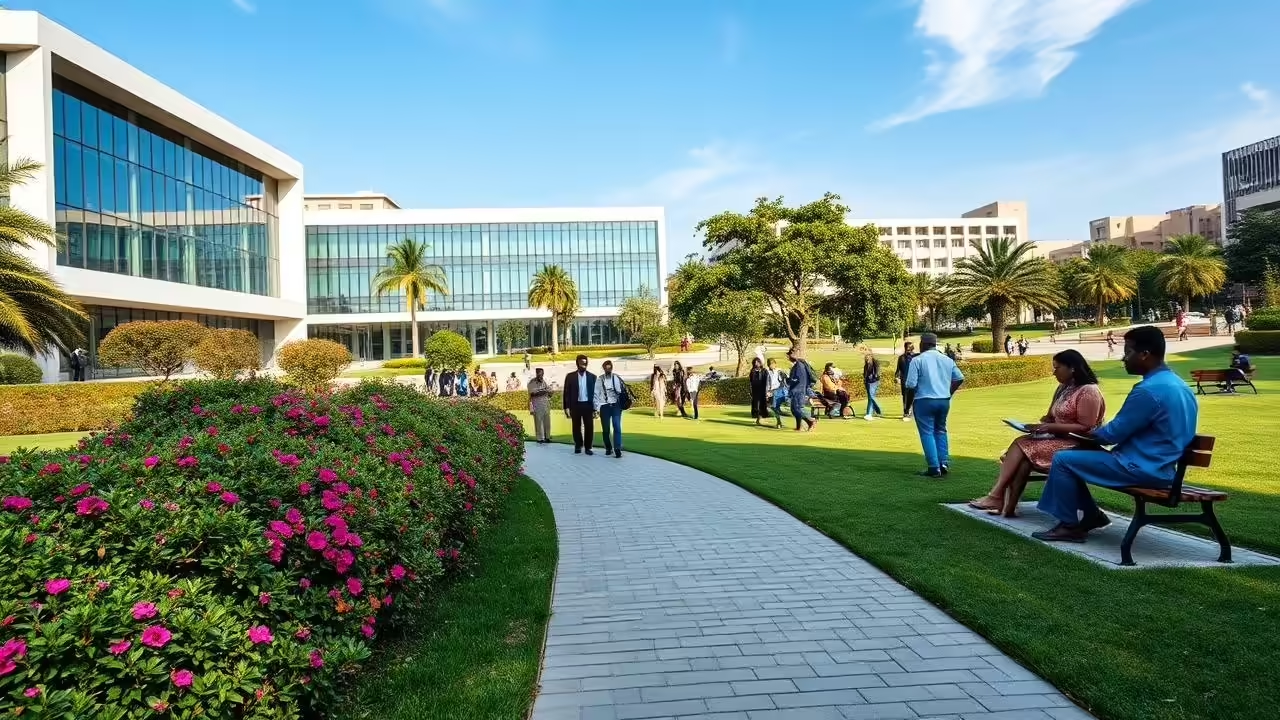In what many are calling a historic leap for higher education in Africa, the Indian Institutes of Technology (IIT) have announced plans to establish their first West African campus in Nigeria by 2026. The move marks a significant milestone in Indo-Nigerian relations and underlines both countries’ shared commitment to advancing science, technology, and innovation through education.
The announcement was made following a high-level meeting between Nigeria’s Minister of Education, Professor Tahir Mamman, and India’s High Commissioner to Nigeria, Abhishek Singh. According to officials, the new campus will be located at the Federal Government Academy (FGA) in Suleja, Niger State — a school already known for nurturing Nigeria’s brightest young minds.
This development follows the model of the IIT Madras campus in Zanzibar, Tanzania, which was inaugurated in 2023 and became the first IIT branch outside India. The Nigerian version will take lessons from that experience — combining Indian academic excellence with local Nigerian talent and infrastructure.

Table of Contents
A Partnership of Vision and Innovation
India’s IITs are globally recognised for producing world-class engineers, innovators, and tech leaders. Alumni include CEOs of major tech firms like Google, Microsoft, and Adobe. Bringing that legacy to Nigeria represents more than just an academic expansion — it symbolises a fusion of expertise aimed at developing Africa’s next generation of scientists and innovators.
Under the plan, India will provide curriculum design, technical assistance, and faculty training, while Nigeria will focus on infrastructure and local student recruitment. The campus will offer undergraduate and postgraduate degrees in fields such as computer science, electrical engineering, artificial intelligence, and renewable energy.
“This collaboration is a bridge between two youthful nations with a shared dream of technological leadership,” said High Commissioner Abhishek Singh during the announcement. “We want to build not just classrooms, but innovation ecosystems.”
For Nigeria, this partnership aligns perfectly with President Bola Tinubu’s vision of turning the country into a hub for digital innovation and industrial growth. By hosting an IIT, Nigeria stands to attract investment, create jobs, and curb the outflow of students who travel abroad for quality education.

Why Nigeria Was Chosen
The question on many lips is: why Nigeria?
For India, Nigeria offers both scale and opportunity. With over 200 million people — and more than 60% under the age of 25 — Nigeria has the demographic potential to become a global talent powerhouse. Yet, the country’s tertiary education system has struggled with underfunding, strikes, and limited capacity.
By situating an IIT campus in Nigeria, India is strategically positioning itself within the continent’s largest economy, while offering an education model that blends world-class standards with local realities.
The choice of Suleja’s Federal Government Academy is also significant. Known as “The School for the Gifted,” FGA has long been a centre for high-performing students in science and technology. Transforming it into an IIT hub will not only elevate its profile but also turn Suleja into a regional innovation corridor.
The Nigerian Ministry of Education said the collaboration will “redefine the standard of technical education in West Africa,” describing it as a legacy project that will set new benchmarks for research, training, and industrial development.
What the Future Holds
When the first batch of students enrols in 2026, they’ll be part of an experiment in cross-continental academic collaboration. The new IIT campus is expected to admit both Nigerian and international students from across West Africa, fostering regional integration through shared learning and research.
Courses will be taught by a blend of Indian and Nigerian faculty members, with strong emphasis on hands-on training, innovation labs, and industry linkages. Students will also have opportunities for exchange programmes with IIT campuses in India — ensuring exposure to both African and global contexts.
Experts believe this partnership could be a game-changer. Dr. Aminu Lawal, a technology policy researcher at the University of Lagos, said, “Nigeria has long needed a strong model for science-based education that is globally benchmarked yet locally relevant. The IIT system provides exactly that balance.”
Beyond academics, the initiative is expected to strengthen India–Africa diplomatic and economic ties. Under India’s National Education Policy 2020, universities are encouraged to establish overseas campuses to promote global collaboration. The success of IIT Zanzibar inspired similar discussions in other countries — including Saudi Arabia, Malaysia, and Thailand.
Nigeria’s inclusion is a nod to its influence in Africa’s education and technology sectors. If successful, the campus could serve as a blueprint for more IIT collaborations across the continent.
Still, challenges lie ahead: building infrastructure, securing funding, recruiting qualified staff, and aligning curricula with Nigeria’s regulatory framework. However, both governments appear determined. A joint Indo-Nigerian task force has already begun mapping out timelines, faculty exchange frameworks, and industry partnerships.

A Landmark Moment for African Education
The coming of the IIT campus in Nigeria is more than a bilateral agreement — it represents a cultural and educational bridge between two of the world’s largest democracies. It also signals a future where young Africans no longer have to leave the continent in search of quality STEM education.
As the world grapples with the challenges of artificial intelligence, renewable energy, and digital transformation, Africa’s ability to contribute to these conversations depends on investments like this one. With India’s expertise and Nigeria’s ambition, the new IIT could very well become a beacon of innovation for the entire region.
When the campus opens its doors in 2026, it will not just mark the start of classes — it will mark the beginning of a new chapter in Africa’s higher education story: one written in collaboration, courage, and shared vision.
Join Our Social Media Channels:
WhatsApp: NaijaEyes
Facebook: NaijaEyes
Twitter: NaijaEyes
Instagram: NaijaEyes
TikTok: NaijaEyes
READ THE LATEST EDUCATION NEWS





